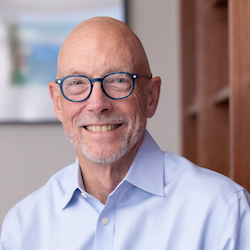By Novlette White and Ted Mitchell
As ACE joins in the celebration of College Signing Day on May 1, we would like to share the postsecondary journeys of a mother and daughter that exemplify the benefits of earning a college degree.
Bobbie Jo Williams was born and raised in Birmingham, Alabama, where she graduated from high school in 1955. Although both she and her parents wanted her to attend college, Mrs. Williams got married a month after graduation, moved to Boston, and started a family. Between the births of her children, she held jobs as a candymaker and assembling television picture tubes at Raytheon.
In 1972, after the birth of her fifth child, she began her postsecondary journey by attending nursing school, eventually passing the Massachusetts state board exam to become a licensed practical nurse (LPN). She then spent 10 years as an LPN, working her way up to hold supervisory positions and taking on unpaid administrative duties at a nursing home. It was at this point that she decided to follow her long desire to attend college and get a bachelor’s degree.
Because she was paying out of pocket for tuition, Mrs. Williams started with one course. Eventually, she took multiple classes once she felt comfortable handling the coursework. As her oldest daughter described it, her mother began “busting some A’s.”
In 1988, six years after taking that first course, Mrs. Williams graduated from Emmanuel College in Boston—alongside her third daughter, Antoinette—with a bachelor’s degree in health care management. She also fulfilled the state requirements to become a nursing home administrator. Her degree, state licenses (LPN and nursing home administrator), and work experience gave Mrs. Williams the flexibility to work part time, determine her salary, be more selective in the positions she considered, and explore other fields within health care.

Like Bobbie Jo Williams, millions of adults will embark on their own postsecondary journey by enrolling in college this fall.
One of the reasons we applaud adult learners is that ACE has a 100-plus year history of helping expand higher education opportunities for these individuals.
Our long track record in this area includes developing the GED® test in 1942, which was initially used by colleges to assess the ability of returning soldiers for college admission. In 1920, ACE created the Committee on the Training of Women for Professional Service to advocate that women should be in the workplace and pursue educational and professional development. We also established the ACE College Credit Recommendation Service (CREDIT®), which evaluates employer workplace education and training programs, military courses and occupations, to recommend college-level academic credit. And each year at our Annual Meeting, we have highlighted adult learners who have demonstrated outstanding achievements in their community or workplace while successfully balancing the demands of family, career, and education. At ACE’s most recent meeting, it was very moving to hear from three adult learners about their different postsecondary journeys (career, military, and prison) and the impact it has had on their lives.
The postsecondary journey of the Williams’s youngest child, Taunya, is probably similar to some of the high school students who are participating in this year’s College Signing Day. In the Williams household, Bobbie Jo was the driving force that her children should attend college. It was not if, but where they would go, and three of her five children did just that without any resistance. But Taunya, who was born 10 years after her closest sibling, would not make it that easy for her mother. She needed what Mrs. Williams described as “some extra mama loving” and coaxing to get her to consider college and pursue a four-year degree.

Taunya’s initial response to her mother about attending college was “I don’t want to be like them”—her older siblings. In all the discussions between mother and daughter, Taunya was never able to articulate why she did not want to go to college. But as a result of her mother’s consistent prodding, Taunya eventually showed an interest in attending a local institution, Mount Ida College, which offered both two- and four-year degree programs. Taunya initially selected the two-year option. Her mother, having seen the career limitations of work colleagues with an associate degree, pointed out these limits in income versus living expenses. After one of these discussions, Taunya responded, “What makes you think I am not going to get a four-year degree?” Mrs. Williams just smiled and quietly accepted the win.
Taunya did go on to earn a bachelor’s degree in business with a concentration in management. Starting in high school and continuing through college and after graduation, Taunya held a variety of positions in retail sales as well as corporate positions in human resources. Today, that work experience combined with her degree has led to her current position in the corporate office of a grocery chain as a human resources director of the retail business services division. Needless to say, her mother is both very proud and happy.
In 1955, the aspiration of a father, who was born and bred in Alabama, for his daughter Bobbie Jo, was to attend college so that “she would not have to clean white people’s houses.” In 1989, the aspiration of a mother for her daughter—and all her children—was to pursue a four-year degree so that they would have more options and fewer limitations.
The National Center for Education Statistics reported that in 2016, 2.2 million high school completers (i.e., graduates or GED® recipients) immediately enrolled in either a four- or two-year institution. It is expected that about the same number will enroll in college this fall. That group of college-bound students will be joined by millions of adults who will be continuing or returning to pursue a postsecondary degree.
Bobbie Jo Williams did not have these statistics on hand in her discussions with her daughter, but based on her life experience, she would likely agree with key findings in a study from the Center on Education and the Workforce at Georgetown University, The College Payoff. Researchers found that on average:
- Lifetime earnings for an individual with a bachelor’s degree will be 1.8 times more than those of a high school graduate.
- Lifetime earnings for those with an associate degree will be 1.4 times more than for high school graduates.
- Field of study also affects lifetime earnings, with STEM, health, and business majors the highest paying on average for entry-level positions and over a career.
- The further individuals go in any type of postsecondary learning, the better for their lifetime career earnings.
So we cheer on these high school students who have decided to immediately continue on to college. And we also celebrate the millions of adults joining them, whose lives have taken various paths since graduating high school. Although having a college degree does not come with a guarantee, the experience of the Williams family attests to the fact that having one offers a lifetime of more options than limitations.
If you have any questions or comments about this blog post, please contact us.



